VOL 3 ; ISSUE 3 - PUNE RESEARCH SCHOLAR (ISSN 2455-314X) JIF 2.46
3.3 SCHOLAR
Area of Article : ALL
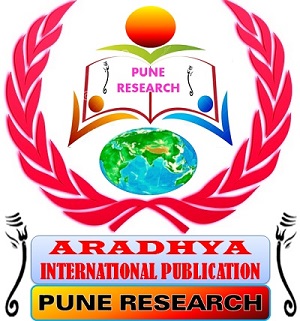
VOL 3 ; ISSUE 3 - PUNE RESEARCH SCHOLAR (ISSN 2455-314X) JIF 2.46
3.3 SCHOLAR

VOL 3 ; ISSUE 3 - PUNE RESEARCH SCHOLAR (ISSN 2455-314X) JIF 2.46
3.3.1 SCHOLAR

We have analyzed the effect of temperature heat source and radiation on
mixed convective hydromagnetic flow of a viscous dissipative fluid through a
porous medium over cylindrical annulus under radial magnetic field. The
equations governing the flow and heat transfer are non-linear and coupled.
These equations are solved by using Galerkin finite element method with
quadratic interpolation polynomials. The interactions of various forces on the
flow and heat transfer characteristics are analyzed. Shear stress, Nusslet
number and Grashoff number are evaluated numerically for different values of
the governing parameters under consideration and are shown in tabular form
Keywords: Non-Darcy; Circular annulus; Viscous dissipation; Radiation; Finite element method;
VOL 3 ; ISSUE 3 - PUNE RESEARCH SCHOLAR (ISSN 2455-314X) JIF 2.46
3.3.2 SCHOLAR
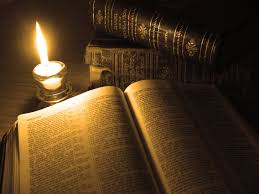
Many poets and novelists have become eco-conscious or environment
conscious. They have used Nature as landscape, as beautiful atmosphere/lively
atmosphere such as R.K.Narayan, Raja Rao, Kamala Markanday, Anita Desai, Kiran
Desai, Jayant Mahapatra, Ramanujan, Bhavani Bhattacharya. The literature has
become a mode of expression about environment and its important in human life
and universe. Environment balance/protection has become the hot issue of the
present time in the whole world. It is the issue of international importance.
Due to the eco-imbalance and the environmental pollution, the whole world is
under the curse of global warming. The world is becoming the prey of the
environmental imbalance and destructions. The healthy well balanced
environment/atmosphere is the need of time. It is like the life blood for the
universe. In June 2013 that ravaged Uttrakhand, the flash flood gave an immense
pain to Indians and it has been called as a man-made disaster or an unplanned
development by man in political and social context. Now this has become a one
of the greatest example of (Ecocriticism) Man’s attimate result of Nature’s
curse on Man, “a tit for tat assassination.” The present paper seeks to outline
eco-critical examination to the relevance and presence of the non-human to
human environment and vice-versa in Indian fiction in English literature. They
have focused their attention on the value of eco-balance and environmental
balance. They advocate the balanced co-relation between nature and mankind.
Keywords: Ecocriticism, Ecological, Nature, Environment, Indian Diaspora, Eco-balance, Landscape, Pollution.
VOL 3 ; ISSUE 3 - PUNE RESEARCH SCHOLAR (ISSN 2455-314X) JIF 2.46
3.3.3 SCHOLAR
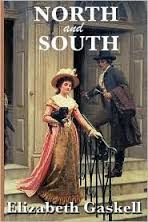
Elizabeth Gaskell was a feminist writer whose fame was clouded by an
eminent fiction tragedian Thomas Hardy, even though she was darkened, her
writings made her bright. The major
reason was her thematic ideas based on social implications and difficulties
faced by the people of British especially who were worked in Manchester
town. In the mean while she didn’t
failed to reveal her identity that is feminist prospective which was properly
established in her novel North and South.
North and South is the novel which portrays the opposition and
segregation of the society into two North and South lines, especially in the
eighty years between the American Revolution and the Civil War. These are economically, politically and
culturally different in two places.
While the North become an industrial and manufacturing powerhouse deeply
affected by social reform movements. The
South people are going to work in North.
This novel explores Elizabeth Gaskell’s treatment of female autarchy
through the character of Margaret Hale.
It also exemplifies the dichotomy of people’s class especially the way
of life standard.
Key words: Implications segregation dichotomy autarchy
VOL 3 ; ISSUE 3 - PUNE RESEARCH SCHOLAR (ISSN 2455-314X) JIF 2.46
3.3.4 SCHOLAR
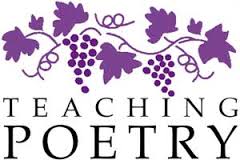
Poetry is the first form of Literature. Poetry provides to the reader an
entertainment, relaxation, pastime, solace, consolation and comfort because it
contains Foot and Meter, Rhythm and Intonation, Rhyme Schemes and Figure of
Speech. Poetry does not only provide these things but also provides world
philosophical knowledge to humanize and beautify the social life of human
being. Poetry depicts the whole vivid pictures and scene of reality of nature
and society. The main aim of the teaching poetry at college level is to
inculcate good things and to give proper direction to the aspirants. With the
help of poem teacher can inspire the students and give career based guidance.
These college level pupils are very eager and enthusiastic; they are the
pillars of nations. Teacher must think these things before teaching the poem in
the class. In single words poet try to tell meaning of human being’s life as
well as whole philosophy of life. The single world may inspire the pupils and
due to this they get positive turning in their life. So the single ‘word’ of
poem becomes the turning point of life of the reader. Some Poets and Critics
define the poetry in their own word such as, William Wordsworth defined the
poem in his words, “Poetry is a spontaneous overflow of powerful feelings and
recollect it into tranquility.” S.T. Coleridge defines poetry, ‘the best word
in best order’ where as Matthew Arnold defines poetry, ‘criticism of life.’
Key words: Interpretation, Explanation, Turning point of life, Humanization, Beautification, Tranquility, Spontaneous, Criticism of life.
VOL 3 ; ISSUE 3 - PUNE RESEARCH SCHOLAR (ISSN 2455-314X) JIF 2.46
3.3.5 SCHOLAR
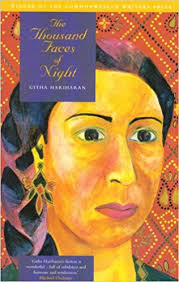
The existence of Gods enhanced the dramatic quality of the myths. In fact,
the first few definitions of myth linked it to the Gods; later with the advent
of anthropology, the definitions changed according to the circumstance and the
studies. As societies and cultures undergo several transformations, several
interpretations of myths emerge. Sometimes, the hidden meanings in the mythical
stories are brought out in the open through these interpretations, and
sometimes, new knowledge regarding a particular society or culture is
highlighted. This process of reclaiming and recreating myths happens at the
cost of demythification. Such demythification takes place especially when the
mythical situations and characters are placed in a modern context to highlight
the contemporary human experience. Though the myths are far displaced from the
contemporary times, they are found to have a cultural relevance and a social
significance.The main contention of this article is that myths are given a new
role to suit the needs of the contemporary times. The writers thus ensuring
that they are not easily relegated to the position of a relic give them a new
life.
VOL 3 ; ISSUE 3 - PUNE RESEARCH SCHOLAR (ISSN 2455-314X) JIF 2.46
3.3.6 SCHOLAR
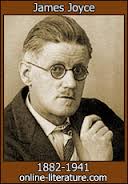
Joyce, James (Augustine Aloysius)
1882-1941. Irish Novelist, Short-story writer and poet. Joyce was born in
Dublin and educated at Jesuit schools (Clongowes Wood College, Kildare;
Belvedere College, Dublin) and University College, Dublin, where he studied
modern languages. He graduated in 1902. His first published piece was an essay
pm Ibsen (‘Ibsen’s New Drama’) written as an undergraduate and published in The
Fortnightly Review in 1900. He cultivated
the acquaintance of (among others) Yeats, Synge, Lady Gregory and George
Russell (“A.E”) who were fostering the Irish cultural renaissance, but in 1902,
dissatisfied with the narrowness of Irish life, he spent a year in Paris.
Though he lived in poverty, he read widely –notably Dujardin’s experimental
novel Les Lauriers Soni coupes (1888), upon which he later modeled his own
stream of consciousness technique.
VOL 3 ; ISSUE 3 - PUNE RESEARCH SCHOLAR (ISSN 2455-314X) JIF 2.46
3.3.7 SCHOLAR

Flora on the copper mine leftovers were enumerated and were analyzed for
copper accumulation. Ocimum Species was
found to accumulate higher concentrations of
Copper. Further certain local
plant species were screened for their tolerance potentials to high
concentrations of Copper. The
economically important species including Hibiscus sabdariffa, H. cannabinus and
Crotalaria juncea recorded higher
tolerant indices to copper. The
importance of the tolerant plants in reclamation of main wastes was discussed.
Keywords: Reclamation, Tolerance, Mineral resources.
VOL 3 ; ISSUE 3 - PUNE RESEARCH SCHOLAR (ISSN 2455-314X) JIF 2.46
3.3.8 SCHOLAR

Adolescence refers to
the intervening period in life that
stands between childhood and adulthood. The teenage years from 13 to 19
constitute the time of adolescence. It is characterized by wide range of
physical, psychological and social changes.
It’s the time when security and carefree time of childhood comes to be
replaced with insecurity and instability in life. Adolescence finds himself confronted with
many new problems. He has to adopt himself to various emotional and physical
changes that are taking place on the one hand and on the other he has to adjust
to the changing social reality of home, school and society. Adolescence is
usually considered the period of storm and stress. Recent studies
have shown that even other periods of life have their own challenges.
VOL 3 ; ISSUE 3 - PUNE RESEARCH SCHOLAR (ISSN 2455-314X) JIF 2.46
3.3.9 SCHOLAR
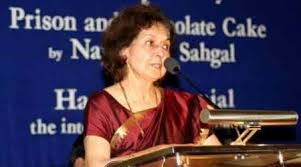
The word ‘Hindu’ doesn’t find its appearance in any of the original
scriptures of the Hindus, compared to Christianity and Islam doctrines which
have come into existence in a defined form by God to a particular person at a
particular time and place. Religious
doctrines in Hinduism are realized and expressed through a gradual process of
reflection by different individuals, covering many centuries. Through gradual evolution, a wide spectrum of
beliefs and rituals have got assimilated into the body of Hinduism. As there is no clear definition for the idea
of god-hood in Hinduism, various creeds or cults which are considered divine
manifestations complementing each other, orient to the infinity of truth and
well-being of human race. The basic
truth underlying Hindu religious evolution is that truth is unique but its
interpretation is many sided. When
compared to Islam or Christianity, Hinduism remains vague. Hinduism does put
forward certain key concepts despite its doctrinal vagueness.
VOL 3 ; ISSUE 3 - PUNE RESEARCH SCHOLAR (ISSN 2455-314X) JIF 2.46
3.3.10 SCHOLAR

The development of industrial sector plays a pivotal role in economic uplift. It raises the productive capacity of the people and creates ever-increasing employment opportunities. The people thus can have more goods and service: leisure and better health denied the previous generations. Industrial development reduces dependence on agricultural exports to earn badly-needed foreign exchange. An industrialized nation is always economically stronger and thus capable of defending itself against any aggression. Tamilnadu is the most industrialized state of India with over 40,000 factories, the most for any state in India and have the country’s largest industrial work force. Tamil Nadu has carved for itself a pride of place in the manufacture of a number of products like textiles & garments, leather products, automobiles and auto parts, light & heavy engineering including fabrication, electronic hardware, granite products, cement, sugar, etc apart from software development and IT enabled Services (ITES). Keep this in this view the aim of the study is to study the problems and prospects of industrial sector in Tamil Nadu. The study reveals that Even though the situation is good for the industrial health of Tamilnadu, it is not free from the lacking. Insufficient power supply to the industries is utmost important problem of Tamilnadu. It can be overcome by capacity addition through taking up new projects. In the modern scenario conventional energy will not be adequate for future projects. Government and the public should fetch the alternate energy sources to overcome the crisis of this sector.
Key Words: Industrial Sector, Problems, Prospects, Tamil Nadu
VOL 3 ; ISSUE 3 - PUNE RESEARCH SCHOLAR (ISSN 2455-314X) JIF 2.46
3.3.11 SCHOLAR

Literature is the
powerful tool for propagating the ideology. It has been perpetually used to
persuade or dissuade the masses from one ideology to other. Literary hegemony
had been overtly and covertly in action to institutionalise oppression since
ages. Being a country of varied cultures, India has been facing the problem of
inequality and atrocities. Dalit is the political term voicing the atrocities
on marginalised masses in India. Since the time immemorial,l literary texts in
India have deliberately neglected Dalits. They were either given no
representation or portrayed as useless untouchables in master narratives of
Indian social order. With the arrival of British the condition began to change
culminating in humanitarian attempts by some writers under the influence of
Gandhian ideology. Post-independence era witnessed a great change with the
advent of Dalit writers on Indian literary scenario. The present paper intends
to explore the texts from ancient religious tradition, texts of Bhakti
movement, texts of Pre-independence era and texts of Post-independence era to
find out the extent of representation given to Dalits in literature and thereby
bring out the politics of representation in literature.
Key Words: Politics of representation, Dalits, Hegemony, Master narratives of social order.
VOL 3 ; ISSUE 3 - PUNE RESEARCH SCHOLAR (ISSN 2455-314X) JIF 2.46
3.3.1 स्कॉलर
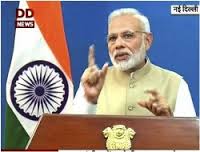
fOkEkqnzhdj.k
,d ,sLkh izfdz;k gS ftlesa orZeku esa izPkfyr eqnzk dks izpyu ls ckgj dj fn;k
tkrk gS vkSj mlds LFkku ij ubZ eqnzk dks yk;k tkrk gSA ,slk gh dqN fnu iwoZ
Hkkjr esa ns[kus dks vk;k gSA 8 uoEcj 2016 dks gekjs ekuuh; iz/kkuea=h Jh
ujsUnz eksnh th us 500 o 1000 ds uksVksa dks iw.kZr;k can dj muds LFkku ij ubZ
eqnzk dks pkyw fd;k gSaA ns[kus ij mudk ;s dne lcdksa cgqr vPNk yxk gS fdUrq gj
,d flDds ds nks igyq gksrs gSaA tgka Hkh dksbZ u;k dke gksrk gS ogka lcdks dqN
vkykspuk,a rks dqN ijs”kkuh vo”; mBkuh iM+rh gSaA ,slk gh dqN gekjs ;gka ns[kus
dks feyk gSaA dqN yksx i{k rks dqN foi{k esa cksy jgsa gSaA ijUrq tks Hkh gqvk
lks gqvk vc ns[kuk ;s gS fd ;s gekjs fy, fdruh ++ewY;oku vkSj fdruh uqdlkunk;d
gks ldrh gSA vjLrq us dgk Hkh gS fd ifjorZu izd`fr dk fu;e gS vkSj ;gka oks gh
ftUnk jg ik;sxk ftlus vius dks ml ifjorZu ds vuqlkj <+ky fy;k gSaA
VOL 3 ; ISSUE 3 - PUNE RESEARCH SCHOLAR (ISSN 2455-314X) JIF 2.46
3.3.2 स्कॉलर
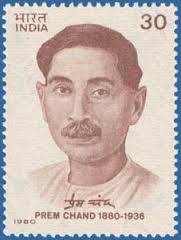
izsepUn u dsoy fgUnh vfirq lEiw.kZ Hkkjrh;
lkfgR; ds dFkkdkjksa esa loksZifj LFkku ds vf/kdkjh gSaA os dgkuh ys[ku ds {ks=
esa vizfre jpukdkj ekus tkrs gSaA vkn'kZoknh gksus ds ckotwn mUgksaus ;FkkFkZ
dh tSlh leqfpr LFkkiuk dh gS oSlh vU;= nqyZHk gSA buds dkj.k gh fganh dgkuh
ys[ku dks Lora= ,oa ekSfyd O;fDrRo izkIr gqvkA
VOL 3 ; ISSUE 3 - PUNE RESEARCH SCHOLAR (ISSN 2455-314X) JIF 2.46
3.3.3 स्कॉलर
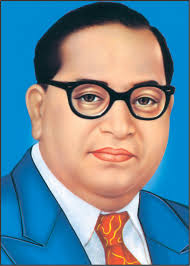
ns”kkr lkekftd yksd”kkgh
vlY;kf”kok; jktdh; yksd”kkghyk egRom jkg.kkj ukgh gs vkacsMdjkaps Li’V ers
gksrs- vkiY;k Hkkjr ns”kkr pkrqZo.;Z
O;oLFkk gksrh- ;k O;oLFksuqlkj czkEg.k] {kf=;] oS”; o “kqnz vls lektkph
foHkkx.kh dj.;kr vkyh gksrh- lektkrhy iwtk vpkZZZfn czEgedeZ czkge.k oxZdjhr
{kf=;kauk ns”kkps j{k.k djkos ykxk;ps- oS”;kauk “ksrh] O;kikj lkaHkkGkok
ykxk;pk o ;k frUgh oxkZph lsok dj.;kps lektkr LoPNrk Bso.;kps dk;Z “kqnz oxkZyk
djkos ykxk;ps- _Xosnkr ,d xks’V izd’kkZus tk.kors dh] vFkZ oa”kkP;k dks.kR;kgh
O;Drhyk] R;kP;k vkoMhpk vkf.k yk;dhpk O;olk; fuoM.;kph eqHkk gksrh- ijarq
mdkykarjkus lektkrhy dkgh erych yksdkauh vkiyk LokFkZ lk/k.;kdjhrk ák “kqnz
yksdkauk =kl fnyk- vLi`”; Eg.kwu R;kauk fg.koys- R;kauk eafnj izos”kcan dsyk- foghjk
o ik.koBs can dsys- ;k dfjrk vLi`”;kauk la?k’kZ djkok ykxyk-
VOL 3 ; ISSUE 3 - PUNE RESEARCH SCHOLAR (ISSN 2455-314X) JIF 2.46
3.3.4 स्कॉलर

Hkkjrh; laxhrkP;k fo|ktZukps Lo:i gs izkfpu
dkGkiklwu oSS;fDrd&ekSf[kd izdkjps vkgs- ;k fo|ktZu i/nrhyk ;sFks
/keZifjorZu] lRrkarj] ijfd; vkØze.kkuarj R;kaP;k 'kkludkGkr >kysys
lkaLd`rhd] jktfd;] 'kS{kf.kd cny ;k ?kVdkauh usgeh izHkkfor dsysys vkgs- ;k
lxG;k ckgîrRokaewGs laxhrkP;k fo|ktZukpk mn~ns’k nsf[ky fofo/k jktoVhr cnyr
xsY;kps fnlwu ;srs- xq:f’k"; ijaijk] xq:dqy i/nrh] ?kjk.;krhy fo|ktZukP;k
dkGkr fo|ktZu gs eq[;rk ekSf[kd Lo:ikr gksr vls dkj.k izkfpu dkGkr eqnz.kkph
O;oLFkk miyC/k uOgrh] rj ?kjk.kk dkGkr fo|ktZukP;k ckcrhr vR;ar xksifu;rk
ckGxyh tk;ph R;keqGs laxhrkP;k fyf[kr fo|ktZukdMs lansg iwoZd ikfgys tkr vls-
fo|knku vkf.k fo|ktZuklkBh QDr fof’k"V ?kjk.;krp f’k{kk ?;koh ykxs R;kewGs
brj ?kjk.;kaps xk;u oknu ,sd.;koj izfrca/k gksrs-
VOL 3 ; ISSUE 3 - PUNE RESEARCH SCHOLAR (ISSN 2455-314X) JIF 2.46
3.3.5 स्कॉलर
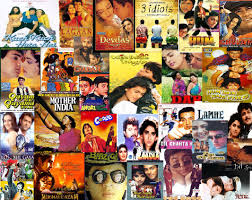
fganh flusek dks vc lkS o”kZ iqjs
gks pwds gSA bu lkS o”kksZ esa fganh esa gtkjks fQYesa cuh] fganh flusek le`/n
gqvkA vius vkjaHkhd dky ls gh fganh flusek us Hkkjrh; lekt ds lkFk rkyesy j[kdj
pyus k iz;kl fd;kA bl iz;kl esa lekt us flusek dks vkSj flusek us lekt dks
izHkkfor fd;kA fganh flusek esa Hkkjrh; lekt dh vk/kh vkcknh dh ckr rks mBrh gh
gSA fganh flusek us Hkkjrh; ukjh ds ukuk :iksa vkSj jaksa dks vius <ax ls
O;Dr fd;k gSA ukjh ds ‘kjhj ls ysdj eu rd vkSj eu ls vkRek rd igqWpus dk iz;kl
fganh flusek us dHkh izR;{k :Ik ls rks dHkh vizR;{k :Ik ls fd;k gSA dqN fQYeksa
esa ukjh ds l’kDr ,oa mnkRr :Ik ds n’kZu feyrs gS rks dqN fQYeksa esa mudk
l`tukRed :Ik jgk gS rks dqN fQYeksa esa mudk lagkjkRed :Ik Hkh utj vkrk gSA